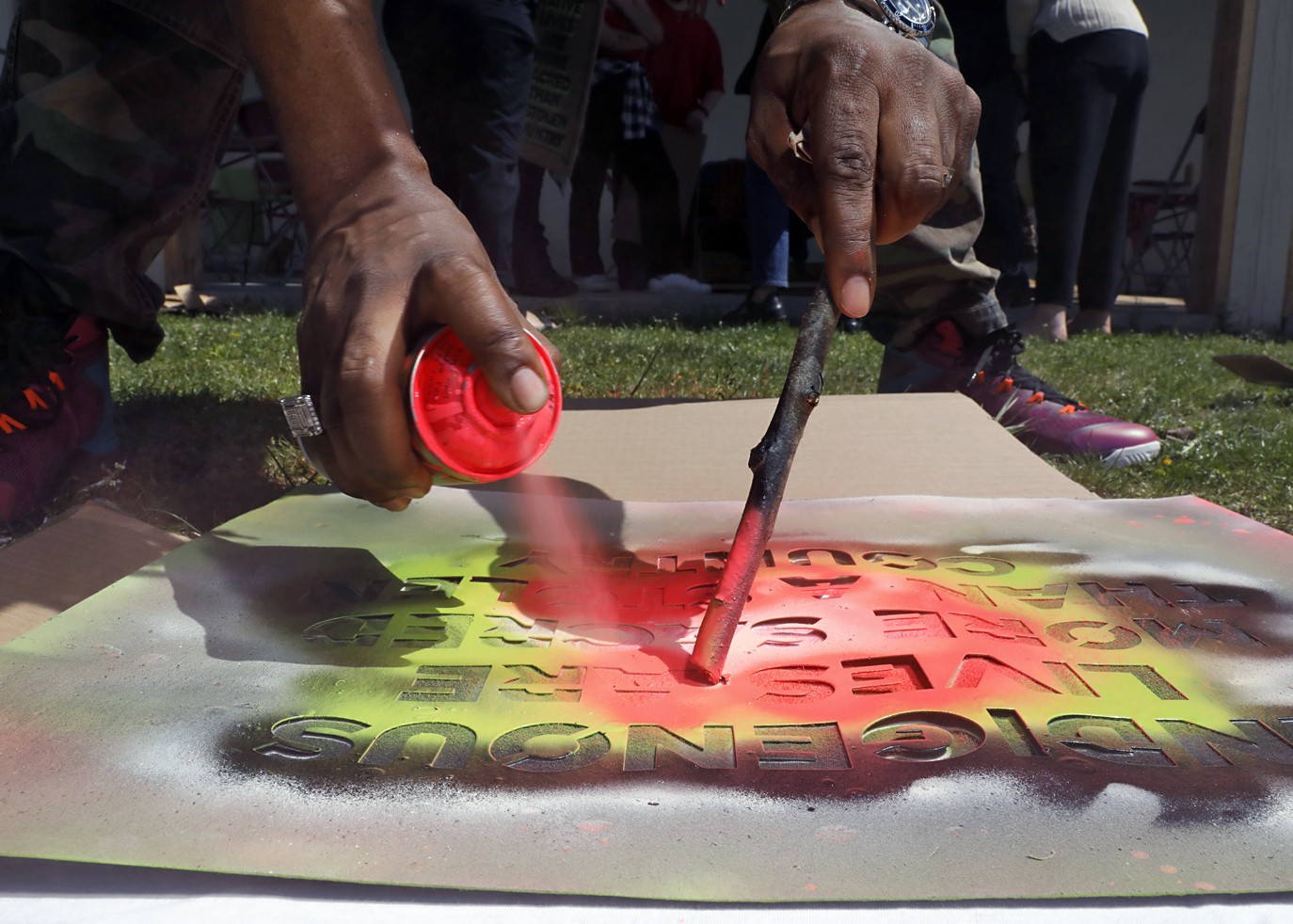May 5 is the National Day of Awareness for missing and murdered Indigenous persons (MMIP). The topic of MMIP (also known as missing and murdered Indigenous women, or MMIW) has only recently made major headlines, but it has been a serious crisis across Turtle Island/North America since Anglo-European settlers arrived unwelcomed in the late 16th century.
The United States and Canada are nations built on the dispossession of Native peoples from their ancestral homelands in order to exploit that land for profit (a form of extractive colonialism). American Indian, Alaska Native, and Native Hawaiian women are murdered at a rate 10 times higher than the national American average, according to the US Department of Justice, and seven times higher for First Nations, Inuit, and Metis women than the national average in Canada, according to Statistics Canada.
MMIP is rooted in the systemic belief that Indigenous women are not valued in a colonial society, and therefore disposable. In the greater Hudson Valley region, Forge Project is working against cultural and institutional barriers caused by centuries of forced removal, where Native women are so fully erased from public life that there is little to no knowledge of the crisis here, including insufficient reporting, data collection, and legislation.
There are several factors why the MMIP crisis still persists, and ways we can change it:
Inadequate Media Coverage
According to a 2017 report by the Urban Indian Health Institute, a data and research organization on urban American Indian and Alaska Native public health, of a survey of 506 cases of murdered Indigenous women and two-spirit people, 95 percent were not covered by national or international media.
This is striking compared to the response by the media of Gabby Petito, a white woman who went missing last fall, and whose case received national and international attention. Journalist Gwen Ifill coined the phrase “missing white woman syndrome” to describe the disparity in attention given to missing-person cases involving young, white, upper-middle-class women and girls. In the same state where Gabby Petito’s body was found, 710 Indigenous people, mostly young and female-identifying, had gone missing.
Laws in Tribal Jurisdictions
There are eight federally recognized tribal nations in New York State. Until recently, most tribal governance had little to no jurisdiction over non-Native perpetrators of violence against Native women on tribal lands. These loopholes not only put Native women at greater threat to gendered violence, but also undermined tribal sovereignty.
Colonialism produces violence and genocide. Native communities are not immune to this. According to the Coalition to Stop Violence Against Native Women, four out of five Native women have experienced some form of violence in their lifetime. Homicide is the third-leading cause of death among Native girls and women aged 10 to 24 and the fifth-leading cause of death for Native women aged 25 to 34.
Lack of Quality Data
While the rates of missing and murdered Indigenous women, girls, and two-spirit people are already high, the true numbers are likely higher. And without having accurate numbers, it is difficult to grasp the full scope of the crisis. Many reports are plagued by insufficient data or data-collection methods.
Rural Native communities, for instance, are hampered by lack of resources to collect data, such as access to culturally competent data scientists, translation services, and transportation to communities and homes across isolated regions. For urban Native populations, underreporting or misreporting skews the numbers. Native women in cities are often either not identified as Indigenous, or misidentified under another racial or ethnic group.
Organizations such as the Urban Indian Health Institute and Sovereign Bodies Institute are actively working to combat this problem. In New York City, Urban Indigenous Collective initiated the MMIWGT2S NYC+ Project, a database to “capture the scope of violence committed against Native and Indigenous People in Lenapehoking, or the New York Tri-State area (NYC, New Jersey, and Connecticut) from 1900 to present.”
Extractive Industries On and Near Tribal Lands
The epidemic of gender-based violence against Native women and fossil-fuel extraction are inseparably linked. Petroleum and natural gas pipeline construction cuts across miles of rural land and through tribal nations. The resistance is local and often female-led.
“Man camps,” or temporary settlements built at the construction sites, are often sites of racist and sexist violence, and are also isolated from police or other intervention. In February 2021, Indian Country Today reported that two of seven men arrested on trafficking charges in Minnesota were working on the Line 3 pipeline as Enbridge contractors. In New York, there are currently seven major pipelines and 40 proposed or approved gas infrastructure projects across the state.
How to Work for Change
Forge Project—a Native-led art, culture, and decolonial education initiative on the unceded homelands of the Muh-he-con-ne-ok—following the work of inaugural Director of Education Heather Bruegl (Oneida/Stockbridge-Munsee), has partnered with the city of Hudson common council and the mayor’s office to enact a citywide MMIP Day of Awareness. We hope that this designation will serve as a model for other municipalities to adopt similar declarations as well as larger projects that protect Native women and two-spirit people throughout the year.
Forge Project is also working with local and national artists and organizations to lead an MMIP Awareness march in the city of Hudson on Friday, May 6. We will begin gathering at the Henry Hudson Riverfront Park around 5:30pm, lead Indigenous activists and allies starting at 6pm, march along Warren Street, and end at City Hall with remarks (a distance of about one mile).
To learn about the march and to join Forge Project in bringing greater local awareness to #MMIP and #MMIW, visit forgeproject.com/news/mmip-march.















